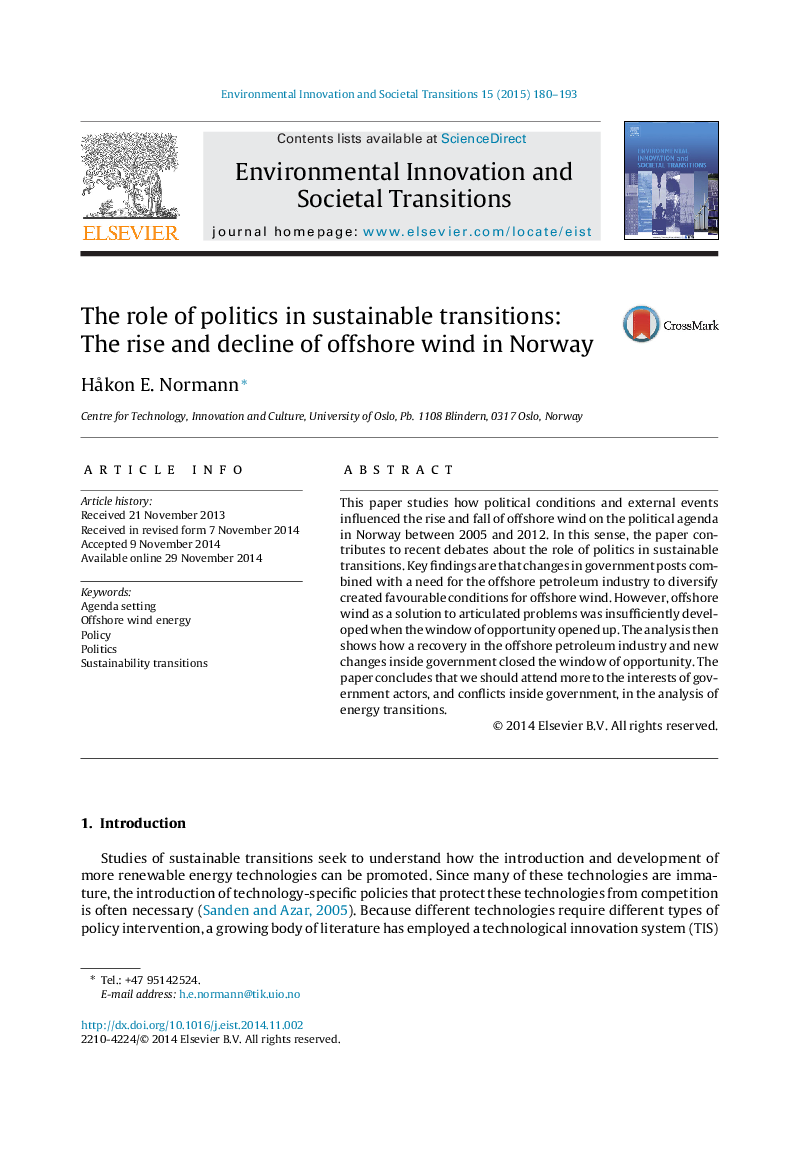| Article ID | Journal | Published Year | Pages | File Type |
|---|---|---|---|---|
| 108196 | Environmental Innovation and Societal Transitions | 2015 | 14 Pages |
•The paper employs a model of agenda-setting to analyse the rise and fall of offshore wind in Norway.•The paper makes use of interviews with politicians, civil servants and industry experts.•Changes in the ministerial positions created favourable conditions for offshore wind.•The petroleum industry is observed as a potential resource, but also as a barrier to the development of offshore wind.•The offshore wind alternative was not sufficiently developed to exploit the window of opportunity that opened up.
This paper studies how political conditions and external events influenced the rise and fall of offshore wind on the political agenda in Norway between 2005 and 2012. In this sense, the paper contributes to recent debates about the role of politics in sustainable transitions. Key findings are that changes in government posts combined with a need for the offshore petroleum industry to diversify created favourable conditions for offshore wind. However, offshore wind as a solution to articulated problems was insufficiently developed when the window of opportunity opened up. The analysis then shows how a recovery in the offshore petroleum industry and new changes inside government closed the window of opportunity. The paper concludes that we should attend more to the interests of government actors, and conflicts inside government, in the analysis of energy transitions.
